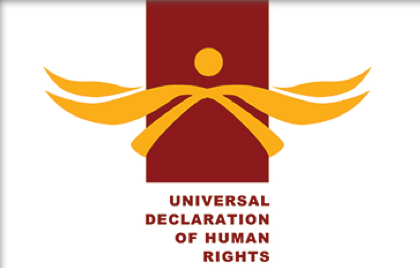A “human rights economy” can deliver for people and the planet because it shifts our focus from growth to humanity – grounding the purpose of the economy in fundamental, universal human values. It offers human rights as a guardrail to keep the economy on track – meeting the challenges of the climate crisis, addressing inequalities and eradicating poverty.
This proposition is not some fairytale. Concrete steps can be taken now, starting with choosing measures of progress other than gross domestic product (GDP) – which tells us nothing about the ecological or social fallout of economic activity.
And we need to start valuing what really counts. GDP has no way of accounting for the estimated 16.4bn hours spent every day worldwide on unpaid work, largely carried out by women, that underpins the global economy: caring for children, people with disabilities and older citizens.



I encourage you to read the letters between Einstein and Freud which lay the theoretical groundwork for human rights.
[1931-1932] [resource] The Einstein-Freud Correspondence
edit: still short on time, but i will re-read your post and reply to the legitimate, non-political questions.
laws are tools. binding treaties create laws.
This does not address anything I said.
In your belief.
It’s not really debatable. I invite you to engage with the realities I have offered or even just disengage if you’d prefer that.
Let me know once you’ve read the Einstein-Freud Correspondence and re-assessed your opinions to be non-machiavellian. Then I will be happy to continue to engage with you.
I’m not even sure what your second request is supposed to mean but I think you have the basic burdens switched around here. I wrote a lengthy good faith response to you. You ignored it and started trying to control the conversation and give homework, repeatedly and condescendingly assuming I’ve never read it before (note how you did not ask). Please ask yourself whether you’re being fair.